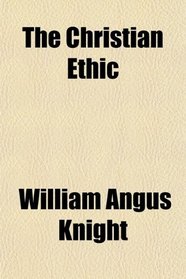Search -
The Christian Ethic
The Christian Ethic
Author:
Purchase of this book includes free trial access to www.million-books.com where you can read more than a million books for free. This is an OCR edition with typos. Excerpt from book: CHAPTER II. THE DIVINE FATHERHOOD AND HUMAN BROTHERHOOD. Looking back from the vantage ground of the nineteenth century we find that in Christianity we ha... more »
Author:
Purchase of this book includes free trial access to www.million-books.com where you can read more than a million books for free. This is an OCR edition with typos. Excerpt from book: CHAPTER II. THE DIVINE FATHERHOOD AND HUMAN BROTHERHOOD. Looking back from the vantage ground of the nineteenth century we find that in Christianity we ha... more »
ISBN-13: 9780217577069
ISBN-10: 0217577067
Publication Date: 8/15/2009
Pages: 132
Rating: ?
ISBN-10: 0217577067
Publication Date: 8/15/2009
Pages: 132
Rating: ?
0 stars, based on 0 rating
Publisher: General Books LLC
Book Type: Paperback
Other Versions: Hardcover
Members Wishing: 0
Reviews: Amazon | Write a Review
Book Type: Paperback
Other Versions: Hardcover
Members Wishing: 0
Reviews: Amazon | Write a Review




